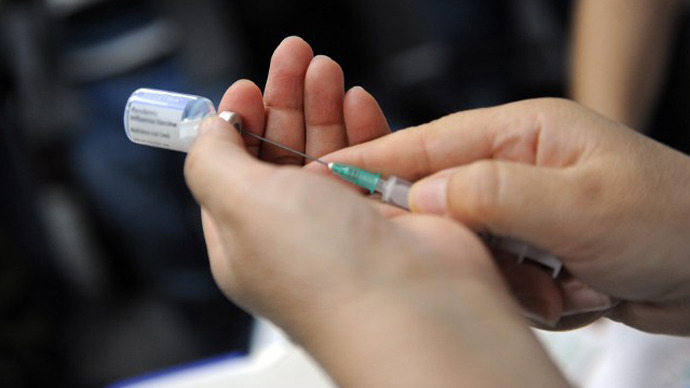Source: Thailand Medical News Feb 06, 2020 5 years, 11 months, 3 weeks, 4 days, 19 hours, 43 minutes ago
Medical Researchers from Duke University in North Carolina have managed to reformulate an existing
cocaine vaccine with a new ingredient to make it more effective to treat addiction. The new ingredient added to a current
cocaine vaccine appears to enhance its effectiveness in blocking the drug's "high" when tested in mice, according to the research findings.

The novel
vaccine, delivered via a liquid nose drop rather than needle injection, includes a new compound that helps the immune systems create antibody responses against
cocaine.
The research findings were published in the journal npj Vaccines.
Although the new formulation of the
vaccine has currently only been tested in mice, it shows promise for human populations, said senior author Dr Herman Staats, Ph.D., Professor in the Department of Pathology, and Associate Professor of Immunology and Medicine at the Duke University School of Medicine.
Dr Staats, who is also a member of the Duke Human Vaccine Institute told
Thailand Medical News via a phone interview, "By inducing antibody responses that block the activity of the drugs, we could prevent the euphoria or high that is associated with using the
cocaine."
Dr Staats, who is also a member of the Duke Human Vaccine Institute further added, "If the individuals do not get the 'high' from using the drug, they may be better able to remain in other treatment programs that help them recover from their addiction."
Dr Staats and colleagues compared the movements of mice that had received
cocaine with those that had received
cocaine and the
vaccine to determine the effects of the dosage.
It was observed that
vaccinated mice showed less movement, which correlates to a decreased 'high' in humans.
Currently, cocaine is one of the most potent and addictive psychostimulants and there are no available drug therapies to treat
cocaine addiction.
Cocaine rapidly enters the brain by crossing the blood brain barrier and exerts its effects upon the central nervous system.
Usage of
cocaine is associated with brain damage and a variety of other serious medical conditions.
An estimated 2.2 million people in the United States or about 92 million people globally are users of
cocaine, according to the 2017 National Survey on Drug Use and Health prepared by the Substance Abuse and Mental Health Services Administration.
Reference: Ashley L. St. John et al. Novel mucosal adjuvant, mastoparan-7, improves cocaine vaccine efficacy, npj Vaccines (2020). DOI: 10.1038/s41541-020-0161-1
